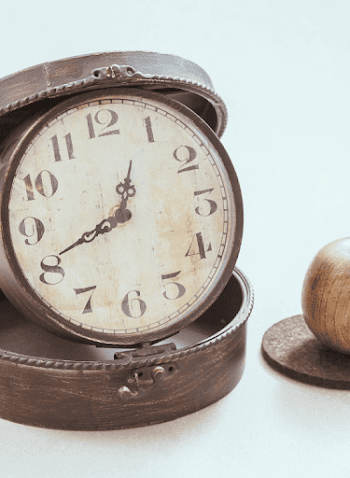There are tons of free genealogy forms available on the internet, and even more paid forms and templates. But these tools can only take you so far. Forms are a great starting point for gathering information about your family history but learn to use them appropriately in this post.
Genealogists love forms and templates. I know. I've been a genealogist for over 30 years and I have 100s of forms and templates in books, handouts, CD, downloads, and even custom forms.
But forms could be causing you a very serious genealogy problem. Genealogy forms or templates certainly are not the root of all genealogy evil but it is very easy to fall into a trap using them and not even realize it.
So let's look at how you can avoid creating extra problems for yourself and successfully use genealogy forms.
The Problem with Using Genealogy Forms
The problem with genealogy forms boils down to one issue. Basically, that's becoming complacent. You become comfortable with using the form and perfectly satisfied with relying on it.
That's the problem. Relying on a form. The good news is, there's a simple solution, don't rely on a form, any form.
That's why you can successfully use forms and templates while they still pose a potential threat to your research.
You are absolutely capable of being successful at genealogy with or without forms and templates. The trick is to use the forms as a tool, not as a crutch.
Let's look at how this should and shouldn't work.
Relying on Forms or Templates
The overarching problem is becoming complacent and reliant when it comes to forms and templates.
More specifically, the problem is, your genealogy research is far too unique for a form or template to ever provide everything you need.
If you use a genealogy form as a tool, it can help you learn about other pieces of information you should gather.
If you use a genealogy form as a crutch (if you rely on it to make progress) you will miss anything and everything outside what it asks for.
If you get nothing else from this post, there are two interrelated items I want you to take away.
- Use forms to help your skills grow but aim to grow beyond forms.
- Rely on genealogy notes instead of forms or templates (think of notes as a form or template you customize to your exact needs).
I was trying to come up with a good analogy so you can visualize what happens when you rely on genealogy forms. What I came up with is almost the opposite.
An Analogy
Most genealogists treat a form like a shopping list. You look for specific things.
A shopping list can revolutionize your grocery shopping experience. They make you fast, healthy, and keep you on budget!
We like fast and on budget in genealogy but genealogy is not like grocery shopping. Unlike grocery shopping, we NEED to go beyond what's on the list and discover other things we didn't know we needed.
I've always envied our dog (in relation to grocery shopping). He can eat the exact same thing at every meal. To control his weight we simply feed him a set amount which only needs to be adjusted if it's too little or too much. Grocery shopping only needs to satisfy that type of scenario. Personally, I like to try all sorts of odd things from the store for variety but even then, I don't need to explore everything that is offered.
Genealogy is the opposite, especially when you get to a hard problem. If genealogy records were groceries, you'd need to pull everything off every shelf and try everything, some things more than once if there was any chance there was a difference between items. You'd need to visit every grocery store that offered any different relevant food.
Genealogy is nothing like grocery shopping but most genealogists use forms like a shopping list.
The Purpose of Genealogy Forms and Templates
I'd say genealogy forms and templates have two purposes. Some are a learning tool. They help us learn what to gather. Some can speed up a task by providing structure or information we need every time.
Most genealogists think they need a form and they often only use the learning type of form. You don't have to use forms and the most helpful are the ones that save you time.
How to Successfully Use Genealogy Forms and Templates
So, are you causing your own genealogy problem by sticking to a form (like a shopping list) instead of exploring all your options?
If you really like forms, make sure you are not using them as a crutch. You should be using a variety of forms OR you should be using them because they provide structure or time-savings.
Most importantly, make sure you are using your human brain. Learn and develop skills so you are relying on your brain not a form, template, or even an app or software. Those are all tools to save us time, not think for us.









